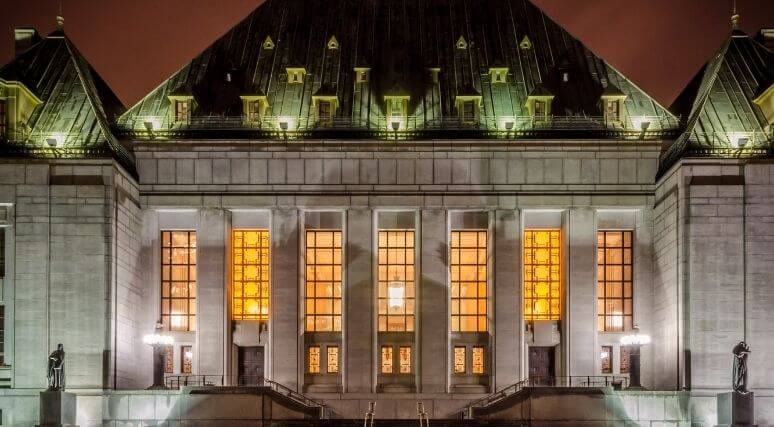This article originally appeared in the Financial Post.
By Bruce Pardy, March 22, 2023
In June 2021, an Ontario high school student tried to sign up for a summer program. He was rejected because he was white. The “SummerUp” program, sponsored by the Ontario government, was open only to Black students. His father filed a complaint with the Ontario Human Rights Tribunal alleging racial discrimination. Last November, the Tribunal dismissed the complaint, saying the quiet part out loud. White people, wrote the Tribunal, cannot claim discrimination.
The law appears to say otherwise. Under the Ontario Human Rights Code, every person has a right to equal treatment without discrimination. The Code, however, has a loophole. “Special programs” are exempt. Special programs give special treatment. They discriminate “to assist disadvantaged persons or groups to achieve or attempt to achieve equal opportunity.” A government, company or organization like a school board can apply to designate a discriminatory program as a special program.
The SummerUp program had not been designated as a special program. But the Tribunal determined it met the requirements anyway, which the Code empowers it to do. If a program discriminates against the “correct” groups, it will fit within the exemption as a matter of course. The Tribunal wrote, “an allegation of racial discrimination or discrimination on the grounds of colour is not one that can be or has been successfully claimed by persons who are white and non-racialized.” The statute that purports to prohibit discrimination authorizes it instead.
It’s not just the Human Rights Tribunal. For almost 40 years, the Supreme Court of Canada has eviscerated legal equality. The Canadian Charter of Rights and Freedoms states that every individual is equal before and under the law and has the right to the equal protection and equal benefit of the law without discrimination. But the Court has given it the opposite meaning. Like the Human Rights Code, the Charter has an equity exception, and like the Tribunal, the Court has made the exception into the rule. The Charter, the Court insists, requires not equal treatment between individuals but equal or comparable outcomes between identity groups.
The Charter does not merely allow discrimination against certain groups, the Court has said, but sometimes requires it. For instance, in 2020 the Court declared unconstitutional a RCMP job-sharing scheme that enabled employees to work part-time if they wished. The voluntary program was open to men and women. Since part-time employees worked fewer hours, they earned lower pension entitlements. More women than men chose to enrol, and as a result more women than men ended up with lower pensions. The program was unconstitutional because the rules of the program were the same for men and women.
Other courts, of course, have followed suit. In December 2022, the Ontario Divisional Court declared a standardized math test for teacher candidates unconstitutional. East and Southeast Asian and white candidates passed the test more frequently than Black and Indigenous test-takers. Therefore, the Court concluded, the test was discriminatory, “which occurs when neutral laws have a disproportionate impact on members of enumerated or analogous groups.” The Court did not care why different groups passed the test at different rates. The fact of disparate success was enough to bring use of the test to an end.
Justice is supposed to be blind. Blind justice means that the same rules and standards apply to everyone without arbitrary distinctions. When the law treats people as individuals rather than as members of groups, it does not matter whether they are Black or white, man or woman, straight or gay, rich or poor. The law should not care who you are.
Unlike Canadians, Americans have a right to equal treatment, at least in principle. The Fifth and Fourteenth Amendments of the Constitution and the Civil Rights Act of 1964 require it. The American legal system still contains within it, albeit imperfectly, the essence of Martin Luther King, Jr.’s dream of a society in which people are judged by the content of their character (as evidenced in their actions) rather than the colour of their skin. The U.S. Supreme Court will soon decide a challenge to Harvard University’s race-based undergraduate admissions process, which complainants allege discriminates against Asian and white applicants. In the U.S., “equal protection” is still the legal test.
In Canada, legislatures, courts, and tribunals have rejected equal protection, but they are not the only ones. Professional regulators, universities, and other public institutions have piled on, too. The Law Society of Ontario insists that in the practice of law there are too many of certain kinds of people and not enough of others. It aims to socially engineer the profession’s demographic makeup and to require lawyers and firms to comport with mandatory “equity, diversity and inclusion” measures. Universities offer admission processes, support programs, and faculty positions for which only certain races are eligible. Government agencies offer grants and other benefits to specific identity groups.
Preferential measures, distinguishing between people by their colour, lineage, gender and sexuality, are becoming the order of the day. It is time to say the other quiet part out loud: Canadians have not agreed to be treated unequally.
Bruce Pardy is executive director of Rights Probe, professor of law at Queen’s University and senior fellow at the Macdonald-Laurier Institute.






